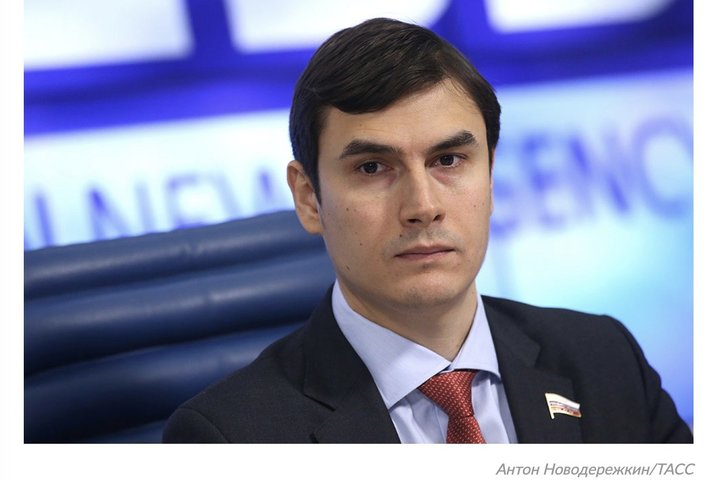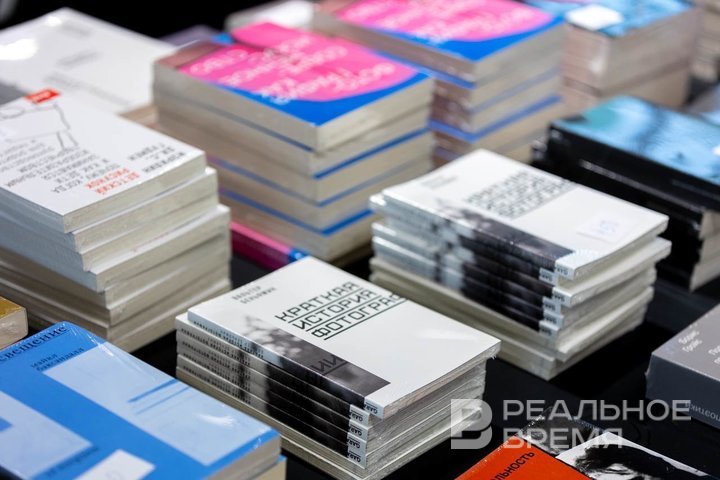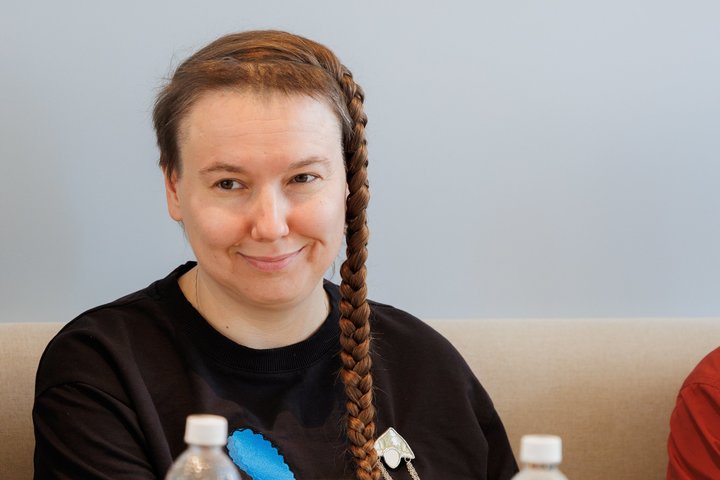Standard for writers: ‘Back in the U.S.S.R.’?
Why the Ministry of Labour is developing professional standards for writers and will they divide literature into official and unofficial

Last week, the Russian Ministry of Labour published a draft on the approval of the professional standard titled Writer. This document caused a lot of controversy and discussion within the book industry. Why does a writer need standards? And how can they be applied to creativity? And won't they lead to the division of literature into official, supported by the state, and unofficial (essentially banned)? Realnoe Vremya’s book reviewer Ekaterina Petrova discussed this project with its initiator Sergey Shargunov and with representatives of the literary community.
“An outrageous percentage of illiterate, limited, stupid writers”
The document of the draft professional standards of a writer identifies categories of writers and poets, literary critics, playwrights and screenwriters who are engaged in the adaptation of literary works. Work actions, necessary skills and knowledge are prescribed for each of them. The first thing that many who studied the document paid attention to was the requirements for the writer's knowledge. In addition to knowledge of artistic and expressive means and the ability to use them, as well as the main directions of Russian and foreign literature, there is a requirement for knowledge of the history of Russia, all Russia and the folklore of the peoples of Russia and the world. Considering that school history textbooks are currently being rewritten and include many controversial points with a single interpretation, this point has caused heated discussions.
“The listed knowledge is a certain cultural minimum. You may not remember all the dates and get confused in palace coups, but a Russian writer, in my opinion, should have at least the most general cultural and historical base,” First Deputy Chairman of the State Duma’s Committee on Culture, chairman of the Association of Unions of Writers and Publishers of Russia and one of the developers of the project Sergey Shargunov told Realnoe Vremya.

Writer Bulat Khanov noted that he understands the reason for the appearance of this item on the list of necessary knowledge:
“We have an outrageous percentage of illiterate, limited, stupid writers in the mainstream, in premium books demonstrating ignorance in full. And these are authors from all camps. Even from those with whom they do not identify themselves. This is a serious disadvantage, especially in competition with British, French, American mainstream writers who impose much higher competence requirements on themselves in any field. Another thing is that the question arises, who will check this knowledge of history? The fathers of the Fatherland whom we should accept as models?”
The question of checking knowledge and passing some kind of state certification for compliance with a professional standard has been raised several times over the past week. Many have cases when a teacher at school or a lecturer at a university “failed” an unloved student. Where is the guarantee that this will not happen now? But Sergey Shargunov said that the standard is “advisory, not mandatory.” And it is needed not for passing certifications, but for the employer who can rely on the standard as the minimum requirements for an applicant.
“I don't see any downsides, and the advantages are obvious”
There was just as much controversy around the point about writers having a higher education. Deputy CEO and editor-in-chief of Alpina Publisher Sergey Turko believes that it is not very important whether the author has a higher education or not.
“If we are talking about fiction, the writer does not need a higher education. Only talent is needed. To evaluate talent, it is enough to see the author's text and nothing more. If we are talking about non-fiction, the author needs to have knowledge and experience, here a higher education will not hurt. But it is also not necessary,” noted Turko.
Sergey Turko also added that demanding an author's education as a writer is pointless and even absurd. This is “the same as demanding a higher education and a dad and mum diploma from parents.

By the way, Sergey Shargunov believes that the lack of a higher education diploma should not be a reason for refusing to hire and a “barrier.” But there are nuances in the requirements of the Ministry of Labour.
“The Ministry of Labour requires that the educational level of the specialist who will work in the position of Writer be indicated. Of course, in our case we can indicate vocational education but I’m sure this won’t reduce the level of hate on social networks; they’ll immediately remind us that Brodsky left the eighth grade. We can probably play ‘incomplete vocational education but Nobel laureate Sholokhov didn’t even have that; he finished four grades,” Shargunov added.
At the same time, he noted that the text of the document doesn’t say a word about specialised education.
And focusing on the professional standard of the writer, the employer can send the author to a university or additional education courses and pay for the training. “In general, I don't see any downsides, and the upsides are obvious,” said Sergey Shargunov.
Writers are “not serfs”
And another question: why do we need professional standards for writers at all? Perhaps, this is where all the disputes within the book community come from.
“The main goal is to introduce the profession of writer into labour relations. To give the writer the opportunity to receive a salary (vacation, sick leave, bonuses, etc.) for his professional activity. Until now, there has been no such opportunity. It is a matter of choice whether the writer needs this. Some feel quite cheerful in relations with the market, and some do not, although the second may be much more talented and professional than the first,” Sergey Shargunov told Realnoe Vremya.
That is, we are not talking about all writers, but about those who are on staff. It should be noted that there is no such practice now. Writers work on a system of fees and royalties. In essence, this is project work.
“There is no point in a publishing house keeping a writer as staff member, it is easier to pay him royalties from book sales, and not a salary, for which he can write a book for at least 10 years,” said Sergey Turko.

But writer Bulat Khanov can imagine a writer as a staff unit, but, alas, not in modern Russia:
“I imagine a staff member of ‘Writer’ in two contexts: in a socialist society or in a large self-sufficient corporation like Hollywood. In both cases, an author hired on a salary has the right to make a mistake (for example, the text turned out to be unclaimed or did not suit the publisher) and a guaranteed income for the duration of the contract. I cannot imagine anything like this in modern Russia. Few executives have easy access to large sums of money and at the same time focus on long-term projects rather than quick profits.”
Sergey Shargunov suggests enshrining this approach in writing. He gave an example of writing a non-fiction book, when a writer often goes on business trips or expeditions, meets with a large number of people and interviews them. Shargunov suggests formalising all this as permanent employment. But, for example, in the practice of Alpina Publisher, promising authors are paid an advance in this case, which the writer can spend on research work. And in general, Turko noted that “the development of such a standard is a classic example of excessive regulation of a sphere that does not need regulation.”

Writer Yevgenia Nekrasova is close to Turko's position. She said that there cannot be a writer on staff in principle because this contradicts the capitalist model.
“There cannot be a writer as staff member for various reasons. First of all, because now any writer is published by different publishing houses. No one spends time in a publishing house and does not sit there, they are not serfs. Today a writer is published by one publishing house, and tomorrow by another, or publishes different books by different publishing houses. Writers in the world with a developed industry create a book, and then offer it to publishing houses, which, ideally, should fight for this book at auctions. There may be a copywriter on staff in an advertising agency or in a marketing company. The very understanding of a writer on staff breaks the market model, when several publishing houses fight for a book. And it's not just about which of the publishing houses will promise more money, but also who will offer the best conditions for publication: circulation, contract term, promotion conditions, etc.,” explained Yevgenia Nekrasova.
“Today, a writer is not socially protected”
But what everyone unanimously agreed on was social protection for writers. Sergey Shargunov claims that professional standards for writers will provide “an opportunity to more broadly resolve issues of social protection for writers, work experience, pensions, benefits, privileges, etc. Today, writers are not socially protected, this needs to be corrected.”
For example, Bulat Khanov noted that he could now use “a writers' community organised according to the laws of a guild or trade union.” And Yevgenia Nekrasova believes that writers can be helped with housing. “We are not talking about free apartments or summer cottages, as it was in the USSR. But, perhaps, some kind of preferential mortgage, in an ideal world, for example,” Nekrasova added. She also added that it would be nice to assign a pension to older authors and, in general, provide support to everyone who needs help.
“As social protection for writers, this is a good idea in theory because most often they cannot live on the income from writing, even very good authors. Of course, unless they write popular detectives or mainstream-mainstream. You can get good money for adaptations, which rarely happens. In addition, after 2022, the awards process became impoverished, and cash awards were almost the only and source of income. And almost all the awards were received by adult male writers,” added Yvgenia Nekrasova.

At the same time, many representatives of the book industry have a question about how this will be implemented in life. Khanov believes that such a program of social protection of authors can be implemented “either in a society of victorious socialism, where writers are assigned a guaranteed procedure for payments by law, including pensions, or in a country with strong trade unions.”
And Nekrasova is sure that this can be done with the help of independent funds, but not with the participation of the state. She cited the example of the United States where there are a huge number of completely different organisations that help and support various social groups. Single mothers, blacks, people with non-traditional sexual orientation, people with disabilities, etc. can receive scholarships or grants. That is to say, it is those groups that for various reasons find it more difficult to compete.
“As a writer, it would be great for me, of course, if there was a writer's stipend. That is, you receive, perhaps not always, but for some time, a stipend, I don't know, once a month for a year or two. During this time, you can write a book and not engage in commercial projects or go to the office. Such a stipend would be especially relevant for authors who have many children or have people who depend on them: parents, again children, a partner. This would help to survive. But not now, sometime, in many years, when everything changes,” commented Yevgenia Nekrasova.

She also added that it would be nice to receive grants from foundations for publishing books that “include a social story.” These could be works about problems that worry modern society — ecology, complex diseases, domestic violence, etc. And in general, to receive a grant for a book in principle. But the writer again emphasized that in modern Russia this is not yet possible. At least because the number of foundations that used to support literary initiatives has been greatly reduced over the past two years, and the country has adopted a number of laws restricting the publication of books on certain topics.
Writers serving the state?
But writers were not so much excited by the requirements for knowledge of Russian history and folklore and the possession of a higher education diploma, but by the very fact of the initiative to develop standards. Most of the discussions were about the fact that the emergence of standards is the first step towards dividing literature into official and unofficial, as it was in the 1930s with the emergence of the Union of Writers of the USSR. You are a member and fulfil a state order — here you have a separate apartment and a country house in Peredelkino. Official writers then had fairly high salaries, many social bonuses and, most importantly, they were published. The rest were left out in the cold, including writing for themselves in the hope that they would someday be published. But they did not count on it much. A similar parallel was drawn now.
“In the case of the professional standard of a writer, this is a state initiative. And where there are perks, cookies and incentives, you have to pay. I have concerns: in order to receive all these benefits, you will have to join something and follow censorship, publicly express some position that is beneficial and necessary for the state, but does not correspond to the writer's own views. In general, it is quite possible that you will have to pay for this with ideological and written loyalty. I think that this will ultimately happen, even if the authors of the initiative to develop standards do not mean this now. The writer's standard may become not only formal, but also ideological,” Yevgenia Nekrasova expressed her concerns.
But Sergey Shargunov claims that this will not happen:
“I understand the concerns of some literary people and I am categorically against pressure on them and any segregation. But social security is, of course, important to them. No, writers should not work off any benefits. Professional standards do not imply any orthodoxy or limitation of creative freedom.”
Ekaterina Petrova is a book reviewer of Realnoe Vremya online newspaper, the author of Poppy Seed Muffins Telegram channel and founder of the first online subscription book club Makulatura.